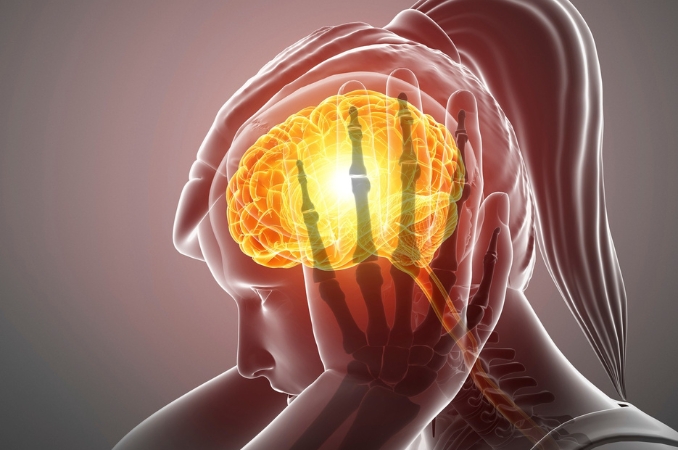Disclaimer : The data provided here is solely for informative purposes and is not intended as medical guidance. Before initiating any new exercise routine, it is advised to ask for guidance from a medical professional.
Teenage stress comes from multiple sources, significantly affecting a teenager's mental health. Academic expectations, social pressure, digital stress. You name it.
Addressing these issues through supportive measures such as open communication and counseling is essential. Teenagers shouldn't be dealing with stress at such a young age. This article will explore ways to help teens manage stress, the types of stress they deal with, and its causes.
Signs and Symptoms of Stress

Stress in teens can occur in various ways, affecting their physical, emotional, and behavioral well-being. Physically, teens may experience headaches, stomachaches, or changes in sleep patterns. Emotionally, it results in heightened anxiety, irritability, and persistent sadness. Behavioral changes can include a decrease in social interaction, changes in eating habits, or engaging in risky behaviors that may lead to mental health problems.
There are three general types of stress which are;
These signs may vary, and not every teen will display the same symptoms. It's crucial for parents, educators, and caregivers to pay attention to these cues and maintain open communication with teens[¹]
1. Easily Agitated
Getting agitated easily or experiencing sudden mood swings can be signs of stress in teens, especially when they get upset or angry over the smallest inconveniences.
2. Physical Pains
Experiencing physical pains without prior cause would mean the individual is stressed out. Headaches, migraines, and stomachaches are signs that the teen is stressed. It's advisable to consult with professionals to rule out other medical conditions.
3. Shift in Sleep Patterns
If your teenager is excessively sleeping but has already had a full night’s rest, it may be an underlying sign of stress. Also, if that individual is suffering from insomnia without prior incidents and causes, it can also be a sign of stress. These sleep patterns can vary among individuals, so keep that in mind.
4. Shift in Eating Habits
A shift in eating habits[²] can be a sign of stress and anxiety due to the connection between emotions and eating behavior. Stress can influence appetite and food choices in various ways. Eating large quantities of food can constitute stress eating while eating too little can affect the overall body health.
5. Self Isolation
Self-isolation can be a sign of stress when teenagers are willing to withdraw from socializing and isolate themselves from others. While occasional alone time can be healthy and vital, prolonged or intentional isolation may indicate underlying stress or mental health concerns.
Causes of Teenage Stress

Bullying and Cyberbullying
Experiencing bullying[³], whether in person or online, can have a deep impact on a teenager's mental health and stress levels. It can negatively affect their social skills, as they build walls around themselves, making it hard to help or communicate with them.
Academic Pressure
Oftentimes, teens stress about the demands of schoolwork, exams, and homework. This pressure to excel academically can lead to high-stress levels for many teenagers.
Peer Pressure
Adolescents often feel pressured to fit in with their peers. This can lead to stress as they navigate social situations and make choices.
Social Relationships
Conflict with friendships, romantic relationships, and family members can be significant stressors. This new introduction of problems for teenagers might be too much for some to handle.
Hormonal Changes
Adolescence is a time of significant physical and hormonal changes.
At this time, a teenager's mood is also easily affected, which contributes to stress.
Types of Stress Teens Encounter
1. Academic Stress

This school-related stress is caused by academics. More specifically, it is too much stress from either a failing grade or a grade their parents aren't happy with. Their grades will dictate their social status and their parent's expectation, which makes most teenagers anxious if they fail.
2. Familial Stress
This type of stress is caused by family. Teens who experience it are most likely dealing with constant arguments and disagreements among their family members. The majority of teenagers are happier when they are outside. This is a stress response to the stressful situations brewing at their homes.
3. Social Stress
Social stress is a type of stress caused by the anxiety of a teenager's place in the social hierarchy. The constant need for approval from their peers, mixed with the thoughts of failure resulted in a cycle of anxiety that would constantly run through their minds every second.
4. Transitional Stress
This type of stress is mixed with several of the previous causes, as this is caused by the complete transition of a teenager’s environment. A new school with new people and awkwardness in a new environment will stress teenagers and affect their mental or physical health.

This type of stress is caused by a teenager’s place in the digital world. The hierarchy of social status and academics has transitioned to the virtual world, meaning that communication will now be constant. This might cause more stress to teenagers or cause mental health issues to be somehow constant.
Strategies for Stress Management
Stress management[⁴] is about coping with life's challenges and pressures. A lot of teens are currently experiencing excessive stress, which is why stress management techniques are more important than ever. These strategies provide healthy ways to reduce the negative effects by expressing yourself or talking about your feelings with others.
Learn to Distance Yourself
Learning to distance yourself from the things or people stressing you out is crucial. Eventually, you must stand your ground and know when to say ‘no.’ Avoid unnecessary burdens and focus on yourself. Get enough sleep, treat yourself, and focus on making yourself happy.
Express Yourself Creatively
One way to deal with stress is to express what bothers you through subtle messages or hidden signs in your artwork. This can range from simple drawings to complex works of art on canvas, as art can help individuals who are too shy to express themselves and manage stress.
Physical Activity
Regular physical activity such as exercising, sports, dancing, and simple muscle relaxation techniques can do wonders.
Participating in physical activities triggers the release of endorphins in our bodies, promoting improved mood, relief from stress, and an overall sense of wellness.
Seek Professional Support
When the weight of stress becomes too hard to bear alone, seeking support from a mental health professional or school counselor can be a big step. School counselors provide support and guidance for teens and offer an understanding space to discuss stress and explore coping mechanisms.
Open Communication
Open communication is the most important thing in managing stress. It involves addressing issues while providing the support that someone stressed would need. Having a supportive environment is crucial; without it, teenagers who suffer from stress are left to fend for themselves.
For The Parents

Stress can present itself in various ways. Parents' role is crucial[⁵] in supporting their teenagers, as symptoms differ from one individual to another, ranging from academic struggles to changes in sleep and eating habits. Understanding these signs is crucial for open communication.
Parents should emphasize the importance of emotional distancing, creative expression, and seeking professional support to assist in managing teen stress effectively. Parents can help their teenagers develop resilient coping skills that will benefit them in adulthood by actively participating in their lives
Conclusion
Teenage stress is a complex issue stemming from academic, family, social, transitional, and digital pressures. Recognizing stress symptoms like agitation, physical discomfort, sleep and eating changes, and isolation is crucial for understanding its various forms in teens. Strategies for managing the causes of teenage stress offer a comprehensive guide for teenagers.
These approaches not only help teens navigate adolescence effectively but also equip them with lifelong stress management skills. It's a holistic journey of self-discovery, skill development, and creating a supportive environment, leading to happier and healthier teenage years.
Finally, there’s a scientifically validated way to naturally manage your stress levels and protect your overall health. So check out this 14-Day Stress Reduction Quick Start Program now!








